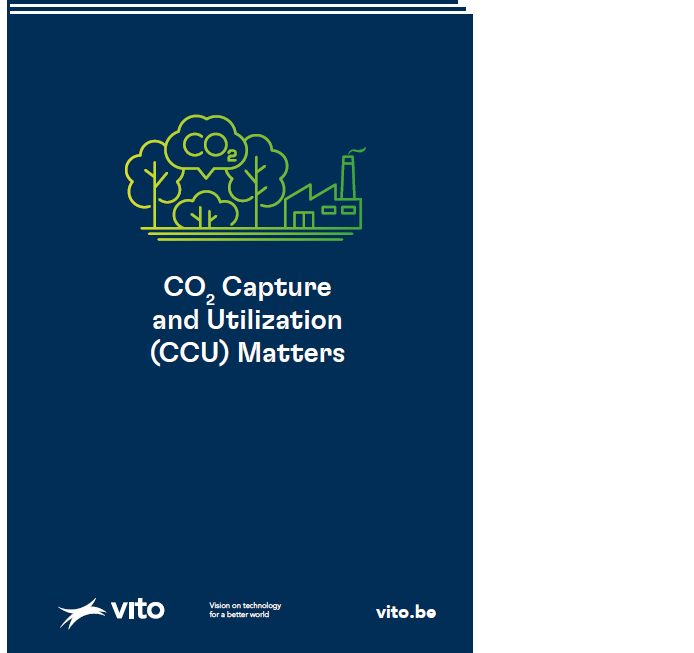
Seven years ago, the Intergovernmental Panel for Climate Change (IPCC) proposed a pathway for the global reduction of CO2 emissions, to limit the expected temperature increase to 2, ideally 1.5°C, by the end of this century. In a new position paper VITO examines which CO2 reduction strategies exist, which are the ones to focus on and how CCU-based value chains contribute in the battle against climate change.
The CO2 emissions originate from burning fossil fuel, industry and land-use and should be rapidly reduced (>350 Mton CO2/year), while ‘negative’ CO2 emissions are gradually introduced in addition to existing CO2 reduction strategies, starting from 2030. This last strategy consists of the capture of CO2 from the air and its permanent storage under the ground or in materials, for which an ‘eternal’ lifetime can be assumed. Existing CO2 reduction strategies include among others electrification, avoided demand, renewable energy and green hydrogen production.
In the new position paper ‘CO2 Capture and Utilization (CCU) matters’ VITO experts provide an answer to the following questions:
- Which CO2 reduction strategy should we focus on?
- And what are the criteria to base such a decision on?
- So what can be the contribution of CCU-based value chains in the fight against climate change?
The search to answers starts from the current and future availabilities of renewable electricity as conditio sine qua non, with deployments spread over time. In this study, VITO concludes that the positioning of CCU within the Sustainable Transition Landscape not only rests on many, different pillars, but also on global trends and the dynamic nature of its boundary conditions.
Position paper
Learn more on the potential of CCU CO2 reduction strategies. Read the position paper.
Source
VITO, press release, 2022-07-07.
Supplier
Flemish Institute for Technological Research (VITO)
Intergovernmental Panel on Climate Change (IPCC)
Share
Renewable Carbon News – Daily Newsletter
Subscribe to our daily email newsletter – the world's leading newsletter on renewable materials and chemicals











